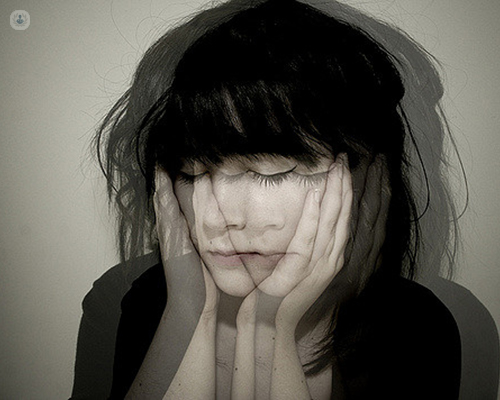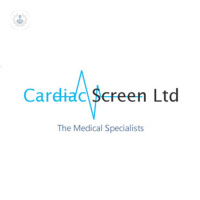Psychotic disorders
Dr Vimal Sivasanker - Psychiatry
Created on: 11-13-2012
Updated on: 07-19-2023
Edited by: Karolyn Judge
What are psychotic disorders?
Psychotic disorders are a group of serious mental health illnesses characterised by abnormal thoughts and perceptions, often distorted from reality. Psychotic disorders are also characterised by delusions (false beliefs) and hallucinations (false perceptions). The most common disorders are:
- Schizophrenia: an illness that causes delusions, hallucinations, disorganised thinking and speech.
- Schizoaffective disorder: an illness that has symptoms of schizophrenia, alongside symptoms of other mood disorders, such as depression or bipolar disorder.
- Delusional disorder: having delusions involving a real-life situation that could be real but isn’t (e.g. having a disease diagnosed).
- Brief psychotic disorder: usually is caused by a specific cause, for example a stressful event, but recovery is generally quick.
- Substance-induced psychotic disorder: caused by withdrawal from drugs, which causes hallucinations and delusions.
Psychotic disorders are generally diagnosed and treated by specialist psychiatrists.

What are the symptoms of psychotic disorders?
The two main symptoms presented by patients suffering from psychotic disorders are:
- Delusions: illogical thoughts and false beliefs, such as someone is following them or plotting against them.
- Hallucinations: are false and unreal perceptions, such as seeing or hearing things that don't exist.

Additional signs of psychotic disorders can include:
- Isolation and withdrawal from society;
- Feeling disconnected from feelings;
- A lack of interest in things;
- Not looking after oneself properly;
- Confusion;
- Being frightened;
- Anger or elation;
- Confused speech or difficulty communicating.
What causes psychotic disorders?
The causes of psychotic disorders are not definitive, and we still don’t know fully why they happen. However, there are several factors that we believe contribute to the development of psychotic disorders:
- A family history of psychotic disorders (parents or siblings)
- Brain chemistry (this can be different in people experiencing schizophrenia, for example)
- Substance-abuse (e.g. cannabis use have been shown by some studies to be linked to the development of schizophrenia)
- Stressful life events such as unemployment, loss, money problems, being homeless, or being abused.

What is psychotic depression?
Psychotic depression, sometimes known as depression with psychosis, is where patients with severe clinical depression experience the symptoms of psychosis; hallucinations and delusional thinking.
The delusions and hallucinations of psychotic depression almost always reflect the person's deeply depressed mood. They many become convinced they're blame for something, for example.
'Psychomotor agitation' where someone isn't able to relax or sit still, and is constantly fidgeting, or 'psychomotor retardation' where thoughts and physical movements slow down, are also common in psychotic depression.
There is also an increased risk of thinking about suicide in people with psychotic depression.
Can stress and anxiety cause psychotic disorders?
Psychotic disorders can be triggered by stress and anxiety. It can also increase the possibility of a relapse, or make existing psychotic symptoms worse.
Can psychotic disorders be prevented?
The prevention of psychotic disorders depends on the cause. If the cause is the consumption of certain substances or drugs, this disease can be prevented by avoiding their use.
What is the treatment for psychotic disorders?
The treatment depends on the cause and type of psychotic disorder. Treatment for psychotic disorders generally include:
- Medications (antipsychotic drugs which are also known as neuroleptic drugs or major tranquilisers, mood stabilisers or antidepressants)
- Cognitive behavioural therapy (to help patients cope better with stress, anxiety, depression and their delusions or hallucinations)
- Family intervention (a type of talking treatment that includes the relatives or carers to help them to support the patient)
- Arts therapies (using art, dance, music or drama to help the patient express themselves in a safe environment with a trained therapist)

In very serious cases, hospitalisation may be required if the person poses a danger to themselves or others.








